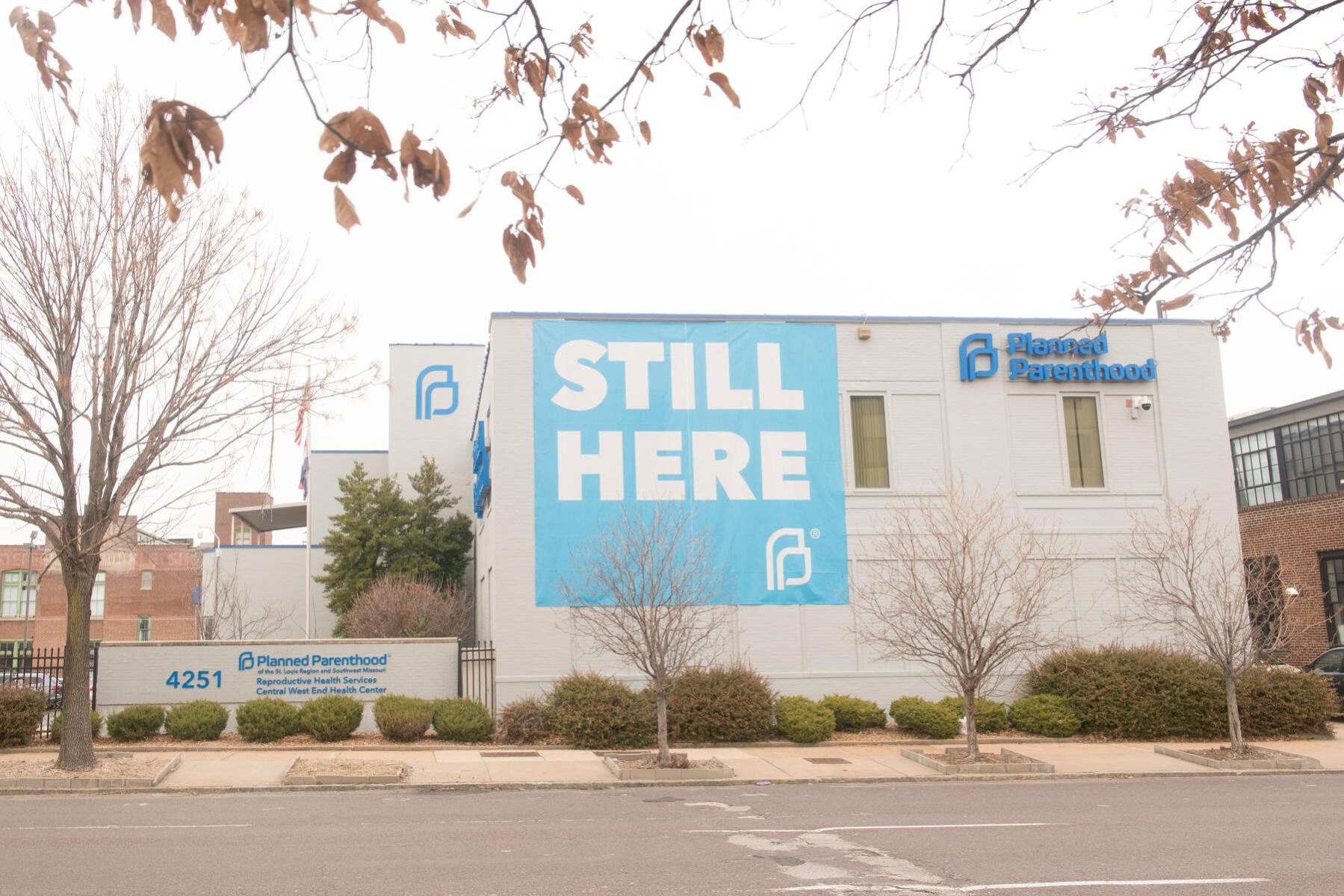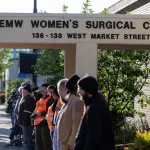Voters in several states will likely have the chance to reverse their states’ abortion bans this November — but the election results could come too late for clinics that have been forced to scale back or even shut down while those bans were in effect.
A measure to enshrine abortion rights in the state constitution has been approved for the November ballot in Florida, where abortion is currently outlawed after six weeks of pregnancy. Organizers in Arizona, which bans abortion after 15 weeks and where a near-total ban could briefly take effect in September, say they have enough signatures to put an abortion rights measure on the ballot.
Campaigns are also underway in Arkansas, Missouri and South Dakota — where the procedure is almost entirely outlawed — to restore abortion rights via ballot measures. (The Arkansas measure would protect abortion up until 18 weeks of pregnancy.) And advocates are pushing for an abortion rights measure in Nebraska, where the procedure is banned after 12 weeks of pregnancy.
Abortion rights measures have succeeded all seven times that they have appeared on state ballots since Roe vs. Wade was overturned in June 2022. But this fall’s campaigns could face a particularly uphill battle, especially in Florida, where 60 percent of voters must approve a ballot measure for it to take effect.
For clinics, the challenge is staying staffed and financially afloat while facing an uncertain future. In Florida, where the six-week ban took effect May 1, health care providers anticipate clinics will be forced to shut down or reduce their services — changes that could be difficult to reverse, even if the state restores abortion rights this fall.
“We’re not naive. We know some clinics are going to close and they’re probably not going to be able to reopen,” said Nikki Madsen, co-executive director of the Abortion Care Network, which supports independent clinics across the country.
History has shown that when abortion restrictions take effect, the resulting clinic closures are likely permanent, even if the state law is ultimately reversed. Already, health centers have shut down in states where near-total bans are in effect. In Arkansas, one of the state’s two abortion clinics closed within the first 100 days of Roe’s overturn; so did a clinic in Arizona.
In 2013, well before Roe’s fall, Texas passed a law limiting abortion in the state. By the time the law was struck down, more than half the state’s clinics had closed. At Houston Reproductive Health Services, one of Texas’ last remaining abortion clinics, the state’s near-total ban has forced a drastic pivot. The clinic now provides a very limited range of services: pre-abortion ultrasounds, post-abortion follow-up, and help referring patients out of state.
“People are definitely going to need pre-abortion ultrasounds. They’re going to need follow-up,” said administrator Kathy Kleinfeld. “And if no one is here, they’re going to go to crisis pregnancy centers” — the anti-abortion facilities that seek to deter people from terminating their pregnancies and that are not regulated under the same standards as medical clinics.
Financially, it’s only possible thanks to drastic downsizing, paying for only the “bare minimum,” said Kleinfeld. After Texas’ near-total ban took effect in 2022, the clinic relocated from a 5,000-square-foot facility to one less than one-fifth the size. It went from 12 full-time employees to three, including Kleinfeld.
“What I thought about was what could I personally afford,” she said. “If I had to foot the bill for the rent and payroll, how much was I able and willing to float the clinic if need be? For how long of a period of time?”
In Missouri, only one abortion clinic existed prior to Roe’s fall: a Planned Parenthood in St. Louis that now focuses instead on birth control, pregnancy counseling, gender-affirming care and testing for sexually transmitted infections.
Dr. Colleen McNicholas, the chief medical officer of Planned Parenthood of the St. Louis Region and Southwest Missouri, said the clinic was able to shift quickly because it had already been diversifying its options even before the Missouri ban took effect in 2022. State legislators had been targeting abortion access there for years; Planned Parenthood performed only about 150 abortions in Missouri the year before Roe was overturned.
“This is a very different reality than independent clinics are facing right now — clinics that are mostly serving just abortion patients,” McNicholas said.
Planned Parenthood clinics have generally been more nimble and able to navigate the changes, she said, though “the business model is challenging.” The organization has been barred from receiving state funding for Medicaid patients, and has chosen to absorb costs for patients so that services remain affordable, though a steadier stream of donations in the wake of the Roe decision has helped.
But even if Missouri does get a measure on the ballot and voters restore abortion access, it will likely take months or even years for her clinic to be able to fully stand up abortion care again. “It isn’t the case that we wake up the next day and abortion is available,” she said.
Part of the difficulty for abortion clinics is that they operate on thin margins. Health insurance often does not cover the procedure, and the federal government cannot subsidize it, meaning patients pay out of pocket or rely on financial support from nonprofit abortion funds. Clinics sometimes provide the service at a discount so that patients can afford it.
Meanwhile, the risk of harassment and violence means clinics often have higher security costs. Some also have to pay to fly doctors in from out of state.
When abortion bans take effect, “you’re getting less clinic revenue while also trying to continue with the same amount of overhead,” Madsen said. Providing other services, like contraception or testing for sexually transmitted infections, doesn’t pull in the same level of income.

At A Woman’s Choice in Jacksonville, Florida’s six-week ban has already cut in half the number of abortions performed, down to just a handful of patients a day. The clinic has pivoted to emphasize other services, such as directing patients to abortion clinics in North Carolina and Virginia, and providing birth control, ultrasounds and some gynecological consultation.
Kelly Flynn, the clinic’s president and CEO, acknowledged the challenges of staying open and retaining staff in the face of the new six-week cutoff — especially those who might want a job with more secure long-term prospects.
“I’m going to keep [staff] on for as long as I can. Some of them may be like, ‘OK, I need to be doing something more than this,’’’ she said. “We can be sustainable. We just have to cut back a bit and figure it out.”
Another Florida clinic, Fort Pierce-based A Woman’s World Medical Center, has launched a GoFundMe to raise $100,000 to stay afloat through the election. Candace Dye, the clinic’s administrator, has already cut her staff’s hours because they are seeing so few patients.
Dye believes her clinic can make it through the fall, and she’s counting on Florida voters restoring abortion rights.
“If [the measure] doesn’t pass, we’ll try to stay open for a while, until we can’t do it,” she said. “But I don’t think we would be able to stay open if we don’t get donations and if it doesn’t pass in November.”
She’s begun making contingency plans just in case. If the measure fails, she said, she’s thought about turning her clinic into a halfway house for women in recovery for substance use disorder. That would allow her to help people in her community, she said, but “it won’t be the same.”
Clinicians in Arizona have a different concern. The state’s Supreme Court recently upheld a near-total ban on abortion — enacted in 1864 — that is set to take effect at the end of September. Although state lawmakers have repealed the ban in favor of a 15-week cutoff, that decision won’t take effect until 90 days after the state’s legislative session ends, meaning that there could be a brief period when abortion is almost completely outlawed.
These providers have some local history to look back on: When the state temporarily instituted a near-total ban in late 2022, following the overturn of Roe, clinics lost employees who sought more stable jobs. It’s a concern that lingers.
“I don’t want to lose staff, because it’s the worst,” said Dr. Gabrielle Goodrick, who runs Camelback Family Planning, in Phoenix. “When you lose staff, you have to hire new people and retrain them. It’s disruptive.”
At Planned Parenthood in Arizona, which has multiple affiliates in the state, the uncertainty has made the business unstable, particularly when it comes to recruiting staff. Dr. Jill Gibson, the chief medical officer for Planned Parenthood Arizona, said the organization’s clinics are in dire need of staff to help manage a high volume of patients, but “who can I bring on that is willing to give up their day job and come over when we are still in limbo?”
Gibson lost two doctors and multiple nurses and clinic staff after the fall of Roe as clinics paused operations twice and later resumed. Job security vanished. All her energy, she said, was spent on staying open — it left little room to expand the business or improve patient care.
“I wish that energy could have been spent in efforts to not just rebuild what has been pulled out from underneath us,” Gibson said. “We have even been trying to rebuild the same table that we had, instead of trying to expand the house that we always wanted and visualized and dreamed of.”
Goodrick, too, has had to work hard to reassure her staff that their jobs are safe. Some are looking into taking on other part-time jobs to supplement their work at the clinic.
“We’re not going to close — we can survive,” Goodrick said. “We know there’s an end in sight.”






